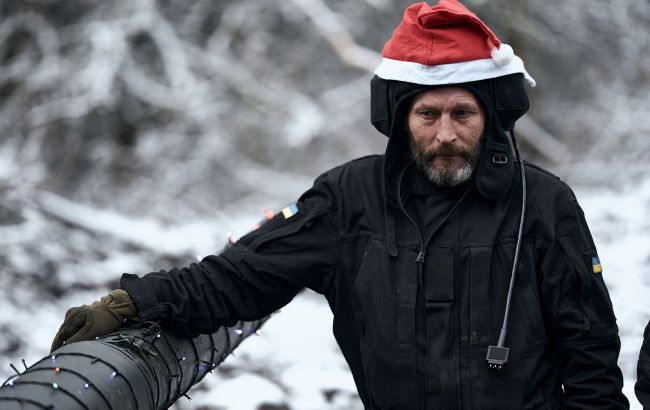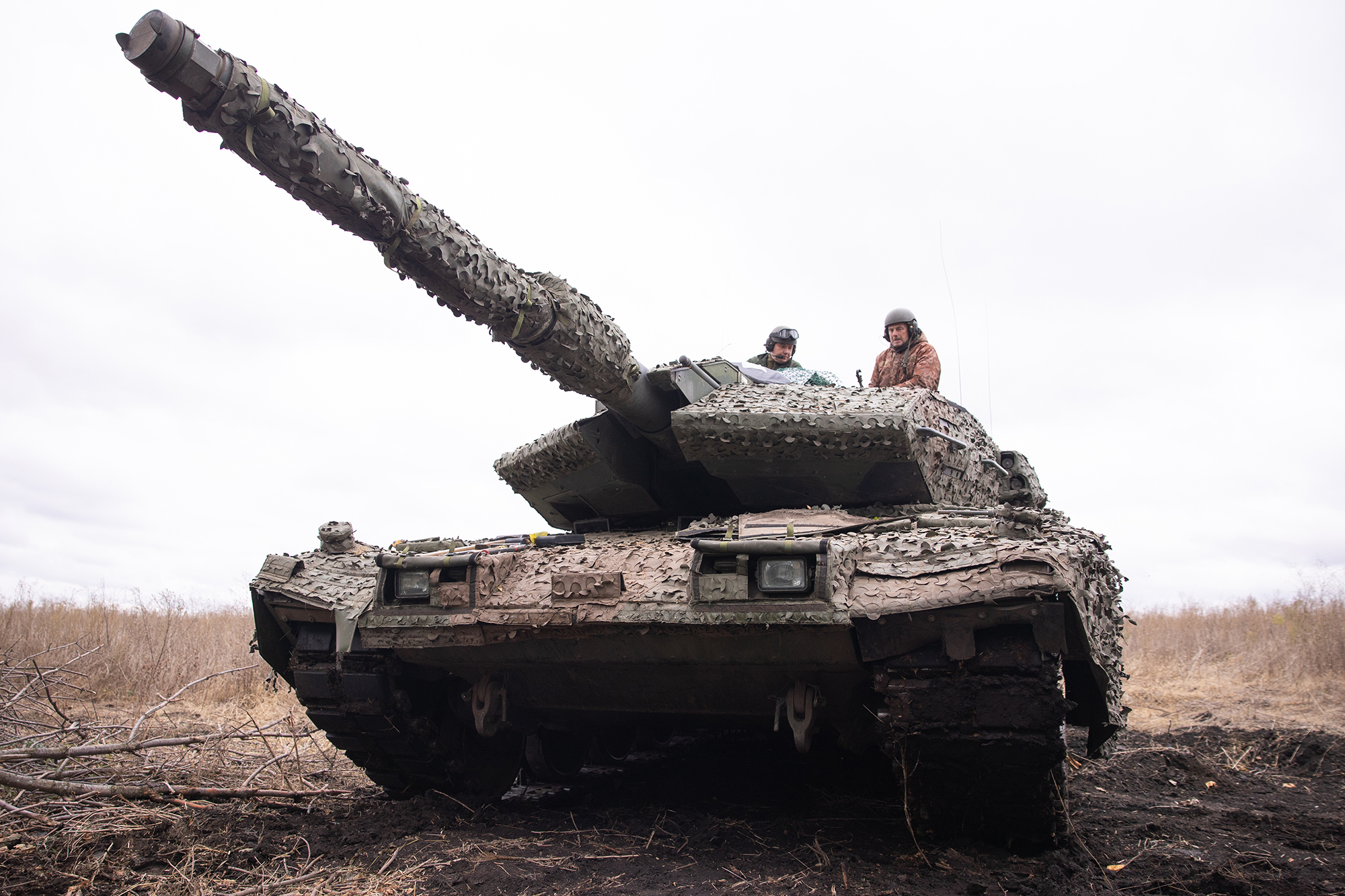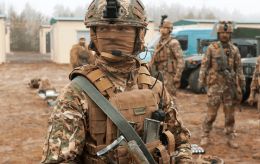Between bad and tough decisions: Why Ukraine has no room for mistake in 2024
 Ukrainians had high hopes for 2023 (photo: Getty Images)
Ukrainians had high hopes for 2023 (photo: Getty Images)
RBC-Ukraine discusses why 2023 was a year of high expectations that the country failed to fulfill and how to avoid making the same mistake again.
Ukrainians had high hopes for 2023. But it was neither a year of victory nor a year of great military success. Ukraine failed to make significant progress on the battlefield. The counteroffensive, which had high expectations both in our country and in the West, ended with the liberation of a dozen villages. By the end of the year, the Russians intensified their attacks along the entire front line and returned to massive rocket attacks on cities. Russia is amassing resources and does not intend to back down from its plans to invade Ukraine and bring the country under its control.
Uncertainty about military and financial assistance from partners for 2024, dim prospects for American support due to the presidential election (read: the Trump factor), and internal challenges related to mobilization are increasing fears of future events. Although the situation hardly looked better a year ago. The country was on the verge of a blackout, the pace and volume of arms supplies were depressing (no decision had yet been made on either tanks or aircraft), and at the front, the Russians were conducting "meat assaults" near Soledar and Bakhmut, getting close to these cities. However, the Ukrainian Armed Forces' breakthrough in the Kharkiv direction and the liberation of Kherson were still fresh in the minds of many, which still left room for optimism.
Expectations of victory grew along with progress in the supply of weapons, the strengthening of air defense, and announcements of a major offensive. Politicians and top military officers, speaking of the upcoming offensive, dreamed of entering Crimea in the summer, walking along the Yalta embankment, and the Ukrainian Armed Forces reaching the borders of 1991. Successful attacks on the Crimean Bridge, drones in Moscow, and missile attacks on targets deep in the Russian rear, as was the case with the Black Sea Fleet headquarters, looked quite promising.
The Ukrainian political elite seemed to be imbued with expectations and believed in victory early on. Big politics returned to the Pechersk hills, and in the rear cities, life was sometimes carefree. The news from the rear overshadowed the frontline, giving the military and volunteers more and more reason to talk about civilians' indifference to the war. At times, we forgot who our real enemy was, directed aggression at each other, and looked for strangers among our own. The rear seemed to be ready to compromise somewhere and did not understand the words of the military that the war was going to last.
 Expectations of victory among Ukrainians grew with the progress in the supply of weapons (photo: Getty Images)
Expectations of victory among Ukrainians grew with the progress in the supply of weapons (photo: Getty Images)
Scandals with army procurement, top bribe-takers in the person of deputy ministers, and the head of the Supreme Court finally exacerbated the degree of tension in society. There was a noticeable demand for fighting corruption and a fair approach to mobilization, travel abroad, financial support for the military, etc. The response to this demand was one of the few things that the government could give quickly due to the lack of victories in a broad sense.
Instead, the public was shown a new pavement in the center of Kyiv and procurement across the country that was far from military needs. There were still officials willing to give/receive a bribe, go on vacation to the Maldives, or buy a new luxury car. Against this backdrop, parties in the capital during curfew with the apparent connivance of the police, daily news of evaders being entered into the Shliakh system by officials for money, and corruption in the Military Qualification Commission were hardly surprising.
The war, as it might seem, began to fade into the background. For a while, the authorities even seriously considered the idea of holding presidential elections. Details of possible disagreements between Volodymyr Zelenskyy and Commander-in-Chief Valerii Zaluzhnyi, who, according to the ruling elites, had a high level of support and was allegedly not averse to finding himself in politics. Rumors of the government's resignation were circulating from time to time, with political players in both the government and the opposition eyeing the prime minister's chair.
But the war forced the rear to pay attention to the battlefield. The situation there was far from what was described in the announcements of the offensive. The problem with ammunition was compounded by a lack of human resources - it was becoming increasingly difficult for the military to man brigades, and there was simply no one to replace the wounded and soldiers from the front line. At the end of the second year of the full-scale war, there are no longer queues at military registration and enlistment offices, a trend that is rather reversed. The Territorial Recruitment Centers (former military enlistment offices) are not coping with the mobilization plan, which ties the military's hands in their plans. At the same time, social networks are full of videos of people being served with calls by force, civilians being beaten by people in uniform, and other episodes that do not motivate them to serve in the army. The simple decision to dismiss all "old" military officers has not been as effective as it might have seemed at first glance.
The government and the military, probably having disagreements over approaches to mobilization and the use of recruits on the battlefield, have brought this topic to the public. President Zelenskyy announced the General Staff's request for 500,000 new soldiers, and Commander-in-Chief Zaluzhnyi essentially denied this request just a few days later. In the confusion and back-and-forth between Bankova Street and the General Staff, a scandalous government draft law on mobilization with many controversial provisions appeared at the end of the year, which was immediately criticized in the Rada and promised some kind of alternative. But in fact, society did not receive any clear answers, except for the fact that mobilization should still be carried out.
 In 2023, Ukrainians are facing changes in mobilization (Photo: Getty Images)
In 2023, Ukrainians are facing changes in mobilization (Photo: Getty Images)
The reality is that neither politicians nor the military, despite the difficult situation at the front, are ready to publicly communicate the tough measures necessary to ensure the country's defense capability. Taking responsibility in difficult times is an extremely unpopular thing for Ukrainian politicians. By wasting precious time, everyone avoids making difficult decisions that society may not approve of, given the list of requests for justice and equal treatment of all.
No one knows whether the war will end in 2024, as President Zelenskyy said. But 2024 will bring Ukraine many uncomfortable questions, the answers to which may determine the survival of the state and the nation. Are we ready to sacrifice some of our civil rights and freedoms to win the war? Will politicians stop being populists and be able to make difficult decisions without shifting responsibility for them to others? Do we have people who will mobilize and give a break to the military, who have been holding the front for two years? As a society, will we accept young people who have been mutilated by war, and will they receive the necessary treatment, psychological help, and a chance for a decent life? Will Ukrainians continue to set an example for the world as a nation that does not give up and fights for its future?
In the coming weeks and months, the answers to these and other questions may determine Ukraine's future and greatly influence the course of the war. In the search for the right solutions, we can blame our problems on sneaky officials, blame the cowardice of men who fled abroad, and complain about indecisive Western partners. But the most important thing is not to forget who our real enemy is and what his victory threatens the whole country.
The recent shelling on New Year's Eve with dozens of civilian casualties showed that the Russians are not abandoning their plans and are not interested in peace talks. Only the arrival of war on their territory can make the aggressor think about the risks to their regime. When alarm bells sound in Russian cities, which have been keeping our country in suspense for almost two years.
And there are those among Ukrainians who, for example, after the shelling of Belgorod, publicly regretted the casualties among Russian civilians. But the Russians can only blame themselves and the Kremlin leadership for these deaths, which the population allows to do evil with impunity, killing thousands and thousands of people in their alien country of Ukraine.
After the reaction of the UN and other "peacekeepers" who condemned the deaths of civilians in Russia, we can only reiterate that we can only rely on ourselves for our survival and defense of the country. Even our closest partners in the West do not feel a fraction of the pain and suffering that Ukrainians have experienced.
As the saying goes, the treatment of a serious illness begins with the acceptance of the diagnosis. It seems that it is time for Ukrainian society to stop arguing about the causes of the disease and start active therapy for a speedy recovery. No one will do it for us.

